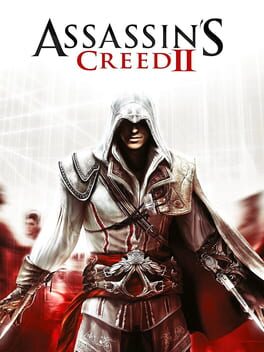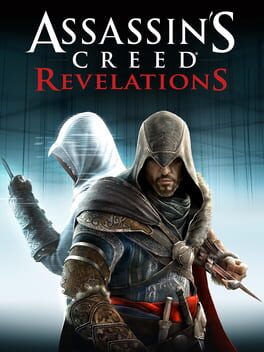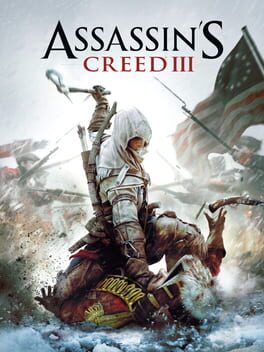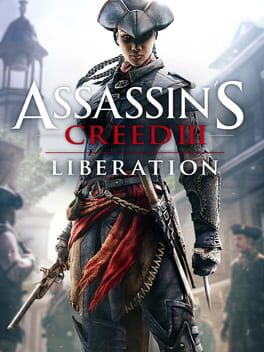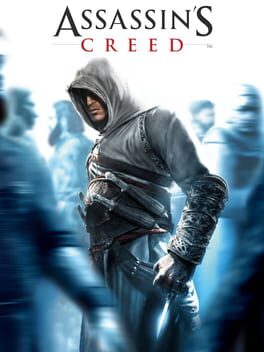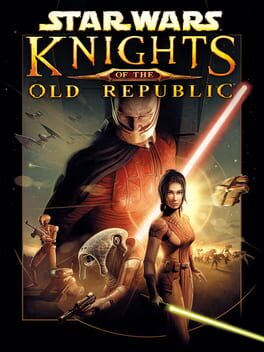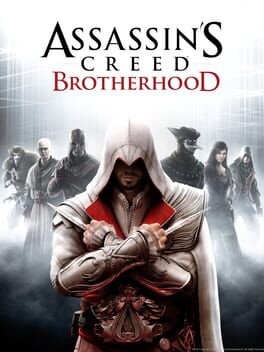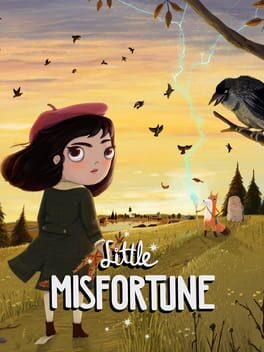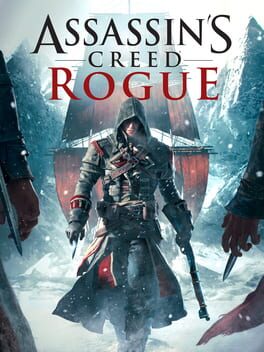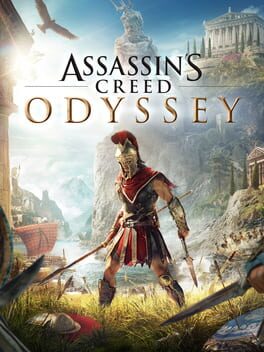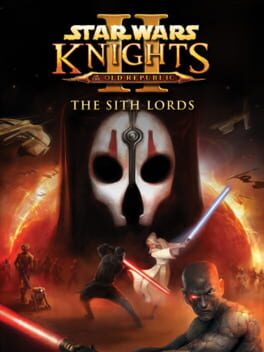Zidcy
2009
AC2 is the best game Ubisoft will ever make.
Ezio undergoes a profound transformation throughout the game, evolving from a carefree young man to a skilled and wise Assassin. The player witnesses his growth as he learns about his family's tragic fate, leading him to seek revenge and eventually becoming part of the Assassin Brotherhood. His charisma, charm, and wit make him a relatable and likable character for players to connect with. Ezio's journey is not just about revenge; it's about self-discovery and understanding the larger purpose of the Assassin Brotherhood. The emotional depth in the storytelling is evident as Ezio grapples with the consequences of his actions and begins to question the meaning of his existence. This emotional resonance elevates the narrative beyond a simple revenge tale. Assassin's Creed II employs a cinematic style that enhances the storytelling. The use of atmospheric music, well-voiced characters, and visually stunning environments contribute to the overall immersive experience. Cutscenes and dialogues are carefully crafted to keep players invested in Ezio's journey.
The soundtrack reverberates an angelic symphony in which 5-year-old me will never forget.
Thank you, Assassins Creed 2.
Ezio undergoes a profound transformation throughout the game, evolving from a carefree young man to a skilled and wise Assassin. The player witnesses his growth as he learns about his family's tragic fate, leading him to seek revenge and eventually becoming part of the Assassin Brotherhood. His charisma, charm, and wit make him a relatable and likable character for players to connect with. Ezio's journey is not just about revenge; it's about self-discovery and understanding the larger purpose of the Assassin Brotherhood. The emotional depth in the storytelling is evident as Ezio grapples with the consequences of his actions and begins to question the meaning of his existence. This emotional resonance elevates the narrative beyond a simple revenge tale. Assassin's Creed II employs a cinematic style that enhances the storytelling. The use of atmospheric music, well-voiced characters, and visually stunning environments contribute to the overall immersive experience. Cutscenes and dialogues are carefully crafted to keep players invested in Ezio's journey.
The soundtrack reverberates an angelic symphony in which 5-year-old me will never forget.
Thank you, Assassins Creed 2.
''And this is the way the world ends. Not with a bang, but a whimper'' Information Age, memetics, social engineering, political conspiracies, censorship, artificial intelligence, existentialism, postmodernism, virtual reality, and the internal struggle of freedom of thought. Metal Gear Solid Two.
A Post-Modern Masterpiece.
A Post-Modern Masterpiece.
2023
I would say this game borders on perfection; the only problem with the game would be its drift away from the Final Fantasy format. The story tho, is perfection, and the side cast inherits beautifully written characters with a taste of charisma and charm. FF16 shows the potential for modern gaming storytelling.
1998
Assassin's Creed Revelations is a gaming gem that transcends the boundaries of mere entertainment, offering a cinematic experience that leaves a lasting imprint on the soul. In this installment, Ubisoft has not only continued the epic saga of Ezio Auditore but has also woven a tale that seamlessly blends history, emotion, and action into a masterpiece of gaming narrative. Revelations marks the zenith of Ezio's journey, portraying him not just as an assassin, but as a seasoned mentor reflecting on a life filled with purpose and sacrifice. The narrative weaves effortlessly between the bustling streets of Constantinople and the serene memories of Altair, creating a multilayered story that keeps players engaged from start to finish. The themes of legacy, love, and the cyclical nature of the Assassin-Templar conflict add a profound depth to the storytelling, making it a narrative tour de force. Ezio Auditore's character reaches its zenith in Revelations, as players witness a more vulnerable and introspective side of the legendary assassin. The nuances of Ezio's relationships, particularly with Sofia Sartor, bring a humanizing touch to the character. The years have not diminished his passion but have added a layer of wisdom and reflection, making him one of the most complex and relatable protagonists in gaming history. Revelations introduces gameplay elements that not only refine the Assassin's Creed formula but also push the boundaries of what the series can achieve. The hook blade adds a dynamic dimension to traversal and combat, making Ezio's movements feel more fluid and acrobatic than ever. The introduction of bomb crafting adds a strategic layer to gameplay, allowing players to approach missions with a personalized arsenal. Revelations is not just a game; it's an emotional journey. The soundtrack, composed by Jesper Kyd, enhances every moment, whether it's a heart-wrenching revelation or a pulse-pounding chase. The writers have succeeded in creating a narrative that tugs at the heartstrings, making players genuinely care about the characters and their fates.
In conclusion, Assassin's Creed Revelations stands as a crowning achievement in the series, delivering a mature and emotionally resonant narrative wrapped in the trappings of a visually stunning and engaging game. Ubisoft has not only given Ezio Auditore the farewell he deserves but has also crafted a gaming experience that transcends the medium's boundaries. Revelations is not just a game; it's a cinematic journey that lingers in the mind, a testament to the power of storytelling in the world of interactive entertainment. This game hit my heart like no other and a fantastic end to Altair and Ezio.
Thank you Ezio.
In conclusion, Assassin's Creed Revelations stands as a crowning achievement in the series, delivering a mature and emotionally resonant narrative wrapped in the trappings of a visually stunning and engaging game. Ubisoft has not only given Ezio Auditore the farewell he deserves but has also crafted a gaming experience that transcends the medium's boundaries. Revelations is not just a game; it's a cinematic journey that lingers in the mind, a testament to the power of storytelling in the world of interactive entertainment. This game hit my heart like no other and a fantastic end to Altair and Ezio.
Thank you Ezio.
2012
It's a three-star at best; nothing really that special. The gameplay is a significant downgrade, and the character development with Connor goes nowhere. I find Connor an interesting character, but by no means the best; that's Haytham. The way Haytham is written is fantastic; his utilitarianism perspective is subtly deep. The atmosphere in the game is very interesting, an underrated aspect. The cast doesn't consist of too many 'good' characters; the only good character is Haytham and kind of Achilles. Once again, Connor had the potential to be a morally torn and complex character, but he falls into this generic revenge story. This game had fantastic potential, but it has too many lows instead of highs. By all means, its highs should be appreciated. AC3 is meh.
2007
This review contains spoilers
Fantastic.
AC1 is the Assassins creed game. The parkour has wonderful navigation, which by far is flawless. AC1's story holds up beautifully too, holding many questions among the fanbase when it first came out. Altair's character development is fantastic too, especially his symbolism. Al Muallim is a fine antagonist, showing a very existential evil point of view on society.
Its cons mostly consist of its, ''open world,'' in which, as you can see, the open world is not really there, although in one of the early trailers you can see Ubisoft had a lot more packed in for the world.
AC1 is the Assassins creed game. The parkour has wonderful navigation, which by far is flawless. AC1's story holds up beautifully too, holding many questions among the fanbase when it first came out. Altair's character development is fantastic too, especially his symbolism. Al Muallim is a fine antagonist, showing a very existential evil point of view on society.
Its cons mostly consist of its, ''open world,'' in which, as you can see, the open world is not really there, although in one of the early trailers you can see Ubisoft had a lot more packed in for the world.
Assassin's Creed Brotherhood stands as a triumphant testament to the brilliance of storytelling, atmosphere, and character development within the gaming realm. Ubisoft has outdone itself, providing players with an immersive experience that not only continues the gripping tale of Ezio Auditore but also elevates the Assassin's Creed series to new heights. Brotherhood effortlessly transports players to the vibrant and bustling streets of Renaissance Rome. The attention to detail in recreating this historical setting is nothing short of extraordinary. From the majestic architecture to the lively markets, every corner of the city breathes life and authenticity. The ambient sounds, coupled with a dynamic day-night cycle, create an atmospheric masterpiece that envelopes players in the rich tapestry of the era. Building on the foundation laid by Assassin's Creed II, Brotherhood introduces innovative gameplay elements that elevate the experience. The addition of the Brotherhood system, allowing players to recruit and command a team of assassins, adds a strategic layer to the gameplay. This not only complements the narrative but also provides a satisfying sense of empowerment as you build your own legion of shadowy allies. Ezio Auditore's journey continues to captivate as Brotherhood delves deeper into his character. From a vengeful young man, Ezio evolves into a seasoned and wise Assassin, grappling with the responsibilities of leadership. The game masterfully portrays his internal struggles, creating a nuanced and relatable character. Witnessing Ezio's growth, both in terms of skills and maturity, is a testament to the writers' commitment to delivering a narrative that goes beyond the standard gaming fare. The narrative in Brotherhood is a tapestry of intrigue, betrayal, and loyalty. The intertwining of historical events with the fictional Assassin-Templar conflict is executed with finesse. The writing strikes a perfect balance between epic storytelling and intimate character moments, keeping players invested in Ezio's quest while unraveling the broader conspiracy that spans centuries.
Once again, another beautiful game created by Ubisoft.
Once again, another beautiful game created by Ubisoft.
2019
What the heck happened here, lads?
Firstly, the plot leads to absolutely nothing, and secondly, its portrayal of 'Assassins can be bad too' is terrible; they made them terrorists? Assassin's Creed I portrayed that even better. Shay is a mediocre protagonist, with once again the only redeeming aspect being Haytham. The only interesting part is the ending, which significantly improves Shay's character from the mess he was. This game could have been good, but it just ended up in the trash.
Nothing else can be said as its gameplay comes straight from AC4's arsehole.
Firstly, the plot leads to absolutely nothing, and secondly, its portrayal of 'Assassins can be bad too' is terrible; they made them terrorists? Assassin's Creed I portrayed that even better. Shay is a mediocre protagonist, with once again the only redeeming aspect being Haytham. The only interesting part is the ending, which significantly improves Shay's character from the mess he was. This game could have been good, but it just ended up in the trash.
Nothing else can be said as its gameplay comes straight from AC4's arsehole.
2011
The best.
The graphics, revolutionising gameplay, dialogue, soundtrack everything about this game reaches what a GAME should be.
We play as the ''Chosen Undead,'' our lost, mentally and psychically, protagonist. We encounter, as the players, many dilemmas, but an infinite contrasted message reaches us: ''Don't you dare go hollow, my friend,'' This message is not only used as a purpose to cheer us on with our difficulty with the game but also serves as a whole existential purpose. In many instances throughout our lives, we encounter people who may be lost. Whether it be addiction, drugs, alcohol, pornography, generational trauma, mental struggles, anything, these people will eventually ''Go Hollow.''
Dark Souls one (in my opinion,) will forever be solidified by its existential, stoic narrative approach. This is evident in the way dialogue and the writing are presented, many instances: Our encounters with the bosses in the games and its whole ''never give up'' approach, the way Gwyn found his purpose through just a little flame, that one tiny purpose, that one thing turned into a whole universe. Dark Souls soundtrack is built upon titles, the purpose to characters, like the soundtrack. ''Gwyn, the lord of Cinder,'' ''Ceaseless discharge,'' ''Gravelord Nito,'' Plenty of bosses has ther own title, but at the end of the game in the credits ''The Nameless Song.'' The Chosen Undead, our main protagonist never has a presented ''main theme.'' So, I believe our protagonist's main theme was ''The Nameless Song,'' this within itself, as an existential message. We are nothing, we hold no title, nothing, but the Chosen Undead, someone who is conceived from nothing, beat all the ones with the titles. Dark Souls one is a masterpiece.
May we plin plin plon our way to our own meaning of life.
The graphics, revolutionising gameplay, dialogue, soundtrack everything about this game reaches what a GAME should be.
We play as the ''Chosen Undead,'' our lost, mentally and psychically, protagonist. We encounter, as the players, many dilemmas, but an infinite contrasted message reaches us: ''Don't you dare go hollow, my friend,'' This message is not only used as a purpose to cheer us on with our difficulty with the game but also serves as a whole existential purpose. In many instances throughout our lives, we encounter people who may be lost. Whether it be addiction, drugs, alcohol, pornography, generational trauma, mental struggles, anything, these people will eventually ''Go Hollow.''
Dark Souls one (in my opinion,) will forever be solidified by its existential, stoic narrative approach. This is evident in the way dialogue and the writing are presented, many instances: Our encounters with the bosses in the games and its whole ''never give up'' approach, the way Gwyn found his purpose through just a little flame, that one tiny purpose, that one thing turned into a whole universe. Dark Souls soundtrack is built upon titles, the purpose to characters, like the soundtrack. ''Gwyn, the lord of Cinder,'' ''Ceaseless discharge,'' ''Gravelord Nito,'' Plenty of bosses has ther own title, but at the end of the game in the credits ''The Nameless Song.'' The Chosen Undead, our main protagonist never has a presented ''main theme.'' So, I believe our protagonist's main theme was ''The Nameless Song,'' this within itself, as an existential message. We are nothing, we hold no title, nothing, but the Chosen Undead, someone who is conceived from nothing, beat all the ones with the titles. Dark Souls one is a masterpiece.
May we plin plin plon our way to our own meaning of life.
